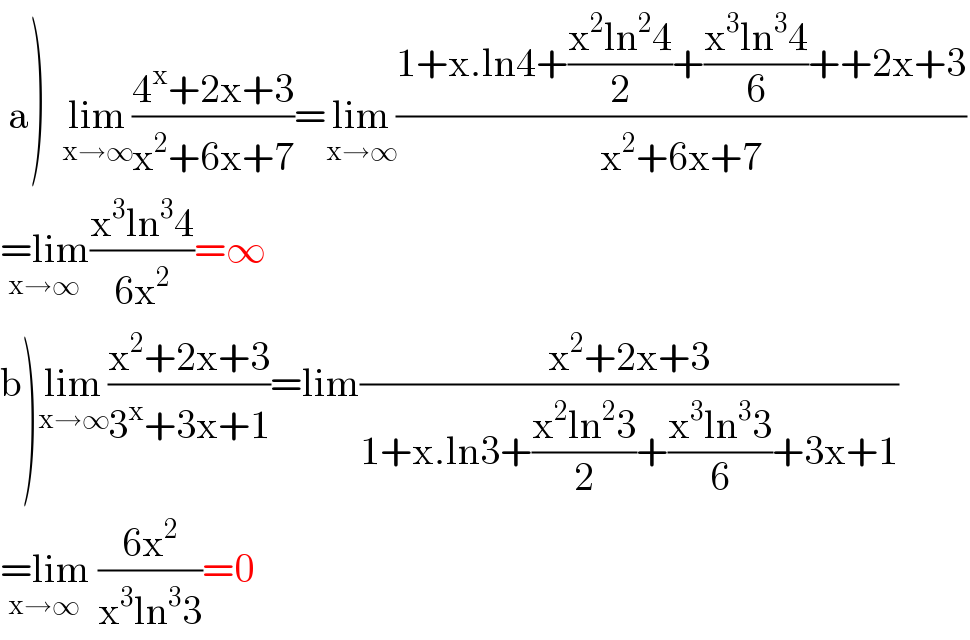
Question and Answers Forum
Question Number 117688 by Khalmohmmad last updated on 13/Oct/20

Commented by prakash jain last updated on 13/Oct/20

Commented by Khalmohmmad last updated on 13/Oct/20

Commented by JDamian last updated on 13/Oct/20
You should know that, when base is greater than 1, the exponential function always wins any polynomial.
Answered by 1549442205PVT last updated on 13/Oct/20

